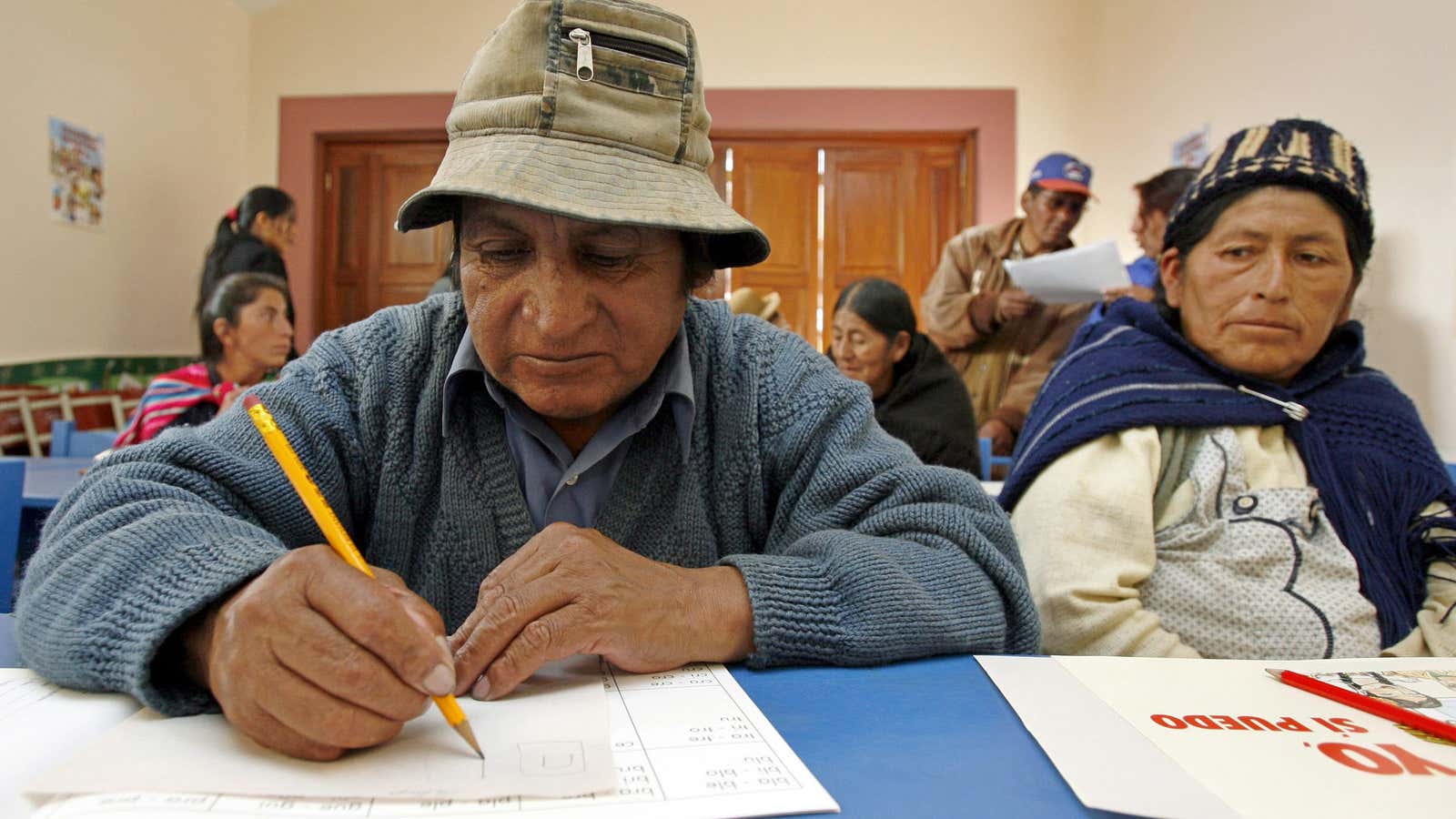A literacy program developed in Cuba is quietly spreading adult education in more than 30 countries.
This week, it was reported that the program—known as “Yo, sí puedo” or “Yes, I can”—is being used by Brazil’s Landless Rural Workers’ Movement to educate 7,000 adults in the state of Maranhão. It has been used to educate Aboriginal communities in remote rural areas and has perhaps been most successful in Venezuela, where it was adopted in 2003. Just two years later, UNESCO declared the country illiteracy free.
The program was developed and promoted by the Latin American and Caribbean Pedagogical Institute of Cuba, which now says over 10 million people from Venezuela to Nigeria have now learned to read and write through the program. “Yo, sí puedo” aims to provide free education to adults who did not have the opportunity to attend school as children.
In 2006, the institute was awarded the UNESCO King Sejong Literacy Prize for its work in advancing “individual and social potential through innovative teaching methods” globally. The program is uniquely effective because it uses pre-recorded video lessons, adapted for each country, that are delivered by a local facilitator.
In an assessment of the program in Uruguay, where it was introduced in 2007 with funding from the government, UNESCO found that 81.4% of the 5,000 people who participated between 2007 and 2010 were no longer considered illiterate. This figure rose to 95% when people with learning difficulties were excluded from the results.
The teaching materials were adapted to be relevant to Uruguayans and used local musicians to provide a background score to the televised lessons. The 65 videos, intended to be used in classes over four months, featured a class of Uruguayan students “with social characteristics mirroring those of the target groups of learners.”
Outside of basic literacy, the program also covered subjects such as health and hygiene, caring for the elderly, and conserving nature. Classes of 20 students met four times a week for 90 minutes at a time. The students watched the video lesson and then worked their way through an exercise book with the help of a local teacher. Because of the success that the program saw in the country, it was implemented in several prisons, a psychiatric hospital, and in the armed forces.
The program’s country of origin, Cuba, boasts a 99.8% literacy rate and spends 12% of its GDP on education, second only to Lesotho. The adult literacy program that Cuba is exporting today finds its roots in Cuba’s 1961 National Literacy Campaign, which saw hundreds of thousands of Cubans learning to read and write in the early years of the revolution.
